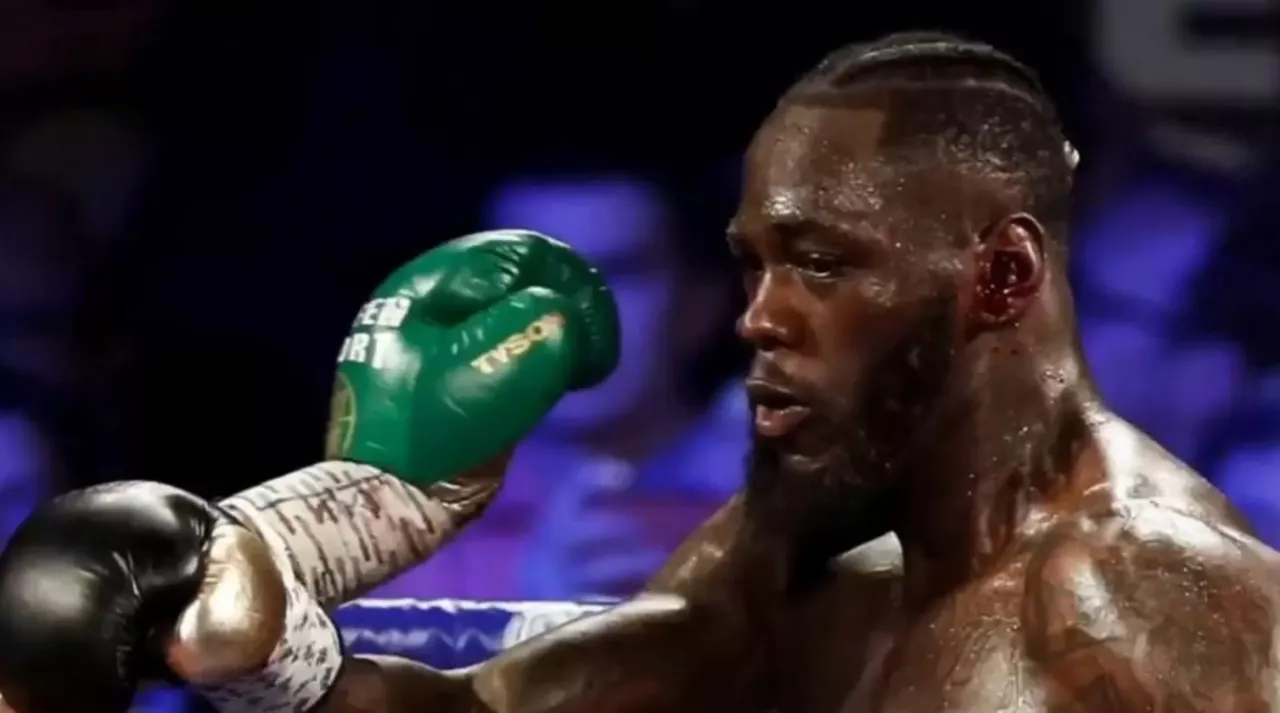Introduction: The Curious Case of Deontay Wilder
Deontay Wilder is a professional boxer who has been making waves in the boxing world for quite some time now. With an impressive record of 42 wins, 1 draw, and 1 loss, it's hard to deny his success in the sport. However, many boxing enthusiasts and critics alike have pointed out that Wilder seems to have limited boxing skills when compared to other fighters in his weight class. In this article, we'll explore the possible reasons behind Wilder's apparent lack of technical prowess and attempt to understand why he has managed to achieve such great success despite these limitations.
The Unorthodox Puncher
One of the most noticeable aspects of Wilder's boxing style is his unorthodox punching technique. Many boxing experts have criticized his wide, looping punches and lack of precision. Some have even gone as far as to say that his punches resemble those of a street brawler rather than a professional boxer. Despite this, Wilder's raw power and ability to land devastating knockouts have helped him achieve great success in the ring.
While his punching style may not be textbook, it's important to recognize that this unorthodox approach has its advantages. Wilder's unpredictable punches can catch opponents off guard and often lead to devastating knockouts. There's no denying that his natural power, combined with this unique approach, has been a winning formula for him thus far.
Lack of Amateur Experience
Another factor that may contribute to Wilder's limited boxing skills is his relatively short amateur career. While many professional boxers begin their training at a young age and have extensive amateur experience before turning pro, Wilder started boxing at the age of 20 and only had 35 amateur fights before turning professional.
This lack of amateur experience means that Wilder may not have had the same level of technical training and development as other fighters in his weight class. As a result, he may rely more heavily on his natural athleticism and power rather than refined technique to win fights.
Heavyweight Division Dynamics
The heavyweight division is known for its emphasis on power and knockout ability. In this weight class, a single powerful punch can quickly end a fight, meaning that the importance of technical boxing skills may be somewhat diminished compared to lower weight classes.
As a result, it's possible that Wilder's limited technical skills may not be as significant of a disadvantage in the heavyweight division as they would be in other weight classes. In fact, Wilder's natural power and knockout ability could be seen as more valuable assets in this division.
Coaching and Training
Another possible explanation for Wilder's limited boxing skills is the quality of coaching and training he has received throughout his career. While Wilder has been working with the same coach, Jay Deas, since the beginning of his boxing journey, some critics have questioned whether Deas has provided Wilder with the necessary technical training to reach his full potential as a boxer.
It's possible that Wilder's training has focused more on maximizing his natural power and athleticism rather than refining his overall boxing skills. This approach may have contributed to Wilder's success in the heavyweight division, but it could also be a factor in his perceived lack of technical prowess.
The Importance of Adaptability
One of the key aspects of being a successful boxer is the ability to adapt and adjust one's style during a fight. This is especially important when facing skilled opponents who can exploit weaknesses in a fighter's technique. Some critics have argued that Wilder has struggled to make these necessary adjustments during his career.
In his two fights against Tyson Fury, for example, Wilder was unable to effectively adapt his strategy to cope with Fury's superior boxing skills. This inability to adjust may be a result of Wilder's limited technical skills and could be a factor in his struggles against more skilled opponents.
Overreliance on Power
There's no denying that Wilder's power has been a key factor in his success as a professional boxer. However, some have argued that his reliance on this power has led to the neglect of other aspects of his boxing skills.
By focusing so heavily on his knockout ability, Wilder may have neglected to develop other important skills, such as footwork, defense, and overall technical ability. This overreliance on power could be a significant factor in Wilder's perceived lack of boxing skills.
Wilder's Success Despite Limitations
Despite his limited boxing skills, Deontay Wilder has achieved great success in the sport. With an impressive record and numerous title defenses under his belt, it's clear that his unorthodox style and natural power have played a significant role in his accomplishments.
While it's easy to criticize Wilder for his lack of technical prowess, it's important to recognize that his unique approach to the sport has allowed him to achieve a level of success that many other boxers can only dream of. Wilder's story serves as a reminder that there is no one-size-fits-all approach to boxing and that sometimes, raw power and natural talent can trump technical skill.
Conclusion: Embracing the Unconventional
Deontay Wilder's limited boxing skills have been a topic of discussion throughout his career. While there are several factors that may contribute to his lack of technical ability, it's important to remember that Wilder's unique style and incredible power have helped him achieve great success in the sport of boxing.
Rather than focusing solely on his limitations, it's essential to appreciate Wilder's unconventional approach and the excitement he brings to the heavyweight division. In a sport filled with a rich history of diverse fighting styles, Wilder's unorthodox techniques serve as a reminder that there is more than one way to achieve success in the world of boxing.
